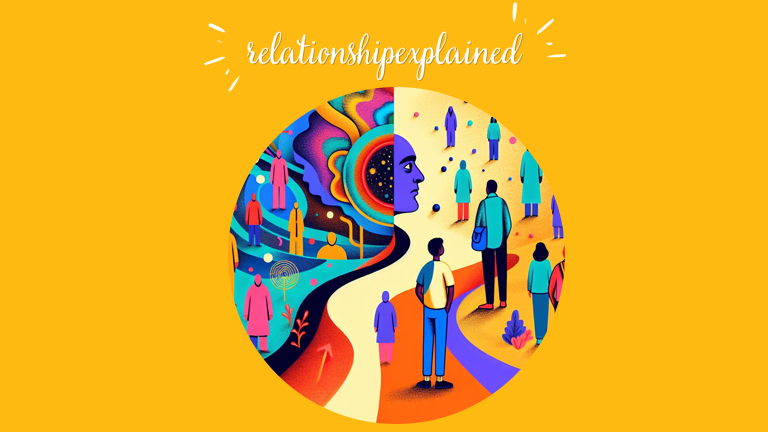Escape the Pleaser Trap
Caught in the cycle of always putting others first, often at your own expense? You might be trapped in the all-too-common pleaser trap, where your sense of self-worth is heavily anchored in the approval of others. This exhausting cycle can leave you feeling drained, both mentally and emotionally, as you lose sight of your own […]
Caught in the cycle of always putting others first, often at your own expense?
You might be trapped in the all-too-common pleaser trap, where your sense of self-worth is heavily anchored in the approval of others. This exhausting cycle can leave you feeling drained, both mentally and emotionally, as you lose sight of your own needs and desires.
Breaking free from this cycle is not just a relief; it's a crucial step towards reclaiming your mental and emotional health. It's about learning to set healthy boundaries, understanding the importance of prioritizing your own needs, and mastering the art of saying 'no' without being weighed down by guilt.
Well, we'll be going over:
- What exactly is the pleaser trap, and how can you tell if you're caught in it?
- How does this cycle impact your mental and emotional well-being?
- What are the first steps you can take towards setting boundaries and prioritizing your own needs?
Let's dive in.
Understanding the Pleaser Trap
You've likely found yourself saying "yes" when you really meant "no," or going out of your way to help someone at the expense of your own needs. This behavior is at the heart of the pleaser trap, a cycle where you consistently prioritize others' happiness over your own. It's a common pattern rooted in the desire for approval and fear of disappointing others.
At first, pleasing others can feel rewarding, providing a temporary boost to your self-esteem. However, over time, this cycle can lead to feelings of resentment, burnout, and a loss of personal identity. Recognizing you're stuck in the pleaser trap is the first step toward reclaiming your independence and well-being.
Acknowledging the impact of your actions on your mental and emotional health is crucial. It's about understanding that saying "no" is not only okay, but necessary for your own well-being. Breaking free requires a conscious effort to set boundaries and prioritize your needs alongside those of others.
The Impact of the Pleaser Trap on Your Mental and Emotional Well-being
Falling into the pleaser trap can significantly affect your mental and emotional health. Constantly prioritizing others' needs above your own leads to a chronic state of stress and anxiety. This stress stems from the fear of not meeting others' expectations and the perpetual effort to avoid conflict or disappointment. Over time, this unending cycle can erode your self-esteem, making you question your worth and abilities.
Moreover, living in the pleaser trap limits your emotional bandwidth. You're so focused on others' emotions and needs that your own feelings remain unacknowledged. This neglect can lead to emotional numbness or, conversely, unexpected outbursts of anger or sadness due to pent-up emotions. The inability to express your own needs or feelings can make you feel isolated, leading to loneliness and depression.
Additionally, the constant strain of trying to please everyone can result in burnout. This burnout isn't just about being tired; it's a deep sense of exhaustion that permeates every aspect of your life, making even simple tasks feel insurmountable. It's crucial to recognize these signs and take steps to protect your well-being.
Setting Boundaries
You've recognized you're in the pleaser trap, feeling overwhelmed and burned out from constantly putting others first. Now, you're ready to break free. The journey begins with setting boundaries, a crucial step towards reclaiming your mental and emotional well-being.
Boundaries are the lines you draw around your personal space, time, and energy that protect you from being overextended. They're not just a fence keeping others out; they’re a declaration of your self-respect and a crucial tool for maintaining your mental health.
Here's how to start setting those boundaries:
- Identify Your Limits: Reflect on what leaves you feeling drained or uncomfortable. Recognize these instances as areas where boundaries are needed.
- Communicate Clearly: Be direct and assertive when stating your needs. You aren’t responsible for how others react, but you are responsible for your own communication.
- Start Small: If the idea of setting boundaries feels overwhelming, begin with small limits and gradually build your way up.
Embracing boundaries means prioritizing your well-being and acknowledging that it's not only okay to put yourself first but necessary. The path towards freedom from the pleaser trap begins with asserting your own needs as equally important as those of others.
Prioritizing Your Needs
In the journey to break free from the pleaser trap, prioritizing your needs isn't just an option—it's a necessity. You've learned about the importance of setting boundaries. Now it’s time to focus on what it means to truly put yourself first. This shift involves recognizing your desires, acknowledging your worth, and understanding that putting yourself first isn't selfish—it's essential for your well-being.
Begin by identifying what you need most for your mental, emotional, and physical health. Is it more time for self-care, pursuing hobbies that you love, or simply allowing yourself space to rest? Whatever it is, acknowledge these needs without guilt. Embracing self-prioritization means making choices that support your overall happiness and fulfillment.
Communicating your needs is also key. This doesn’t mean demanding but rather sharing your feelings, desires, and limits in a clear, respectful way. By expressing what you need, you invite understanding and respect from those around you.
Remember, prioritizing your needs helps in reclaiming your independence and vitality. It’s a step towards a balanced life where you can still be there for others without losing yourself in the process.
Learning to Say "No" Without Guilt
Mastering the art of saying "no" is pivotal in your quest to break free from the pleaser trap. It's not just about declining requests; it's about affirming your own needs and limits. Initially, you'll likely grapple with guilt or fear of disappointing others. Yet, this stage is crucial for fostering self-respect and personal boundaries.
Simple Steps for Easier Refusals:
- Pause Before Responding: Give yourself time to evaluate the request against your own needs and schedule.
- Be Clear and Direct: A straightforward "no" is more respectful than a dishonest yes.
- Offer an Alternative: If you're inclined, suggest another solution that doesn't compromise your priorities.
Remember, your worth isn't tied to how much you do for others. By practicing saying "no," you reclaim your power to choose what's truly important to you. This adjustment period is challenging but vital for your growth and well-being.
Reclaiming Your Independence: Taking Steps Towards Breaking Free
Once you've acknowledged the cost of constantly pleasing others, it's time to reclaim your independence. This journey starts with self-awareness. Understand your needs, desires, and values. Are they in alignment with your actions? Often, they're not. But recognizing this dissonance is the first step towards change.
Next, practice self-care. It sounds simple, yet it's profoundly transformative. Self-care isn't just about spa days or indulging in your favorite foods. It's about giving yourself permission to prioritize your needs, rest, and engage in activities that replenish your energy and spirit.
Finally, build a support system. Surround yourself with people who respect your boundaries and encourage your journey towards independence. This support network can provide strength and encouragement when you're tempted to fall back into old habits.
As you implement these steps, remember, breaking free from the pleaser trap is a gradual process. It requires patience, persistence, and a lot of self-compassion.
Conclusion
Embarking on the journey to break free from the pleaser trap is both liberating and challenging. Remember, it's a gradual process that demands patience, persistence, and a hefty dose of self-compassion. By setting boundaries, prioritizing your needs, and learning to say no, you're taking significant steps towards reclaiming your independence.
Embrace self-awareness and self-care; these are your tools for transformation. Surround yourself with a supportive circle that respects your boundaries, and you'll find the strength to stay true to yourself. Breaking free isn't just about saying no to others—it's about saying yes to your well-being and happiness. Keep pushing forward; the rewards of living authentically are well worth the effort.












